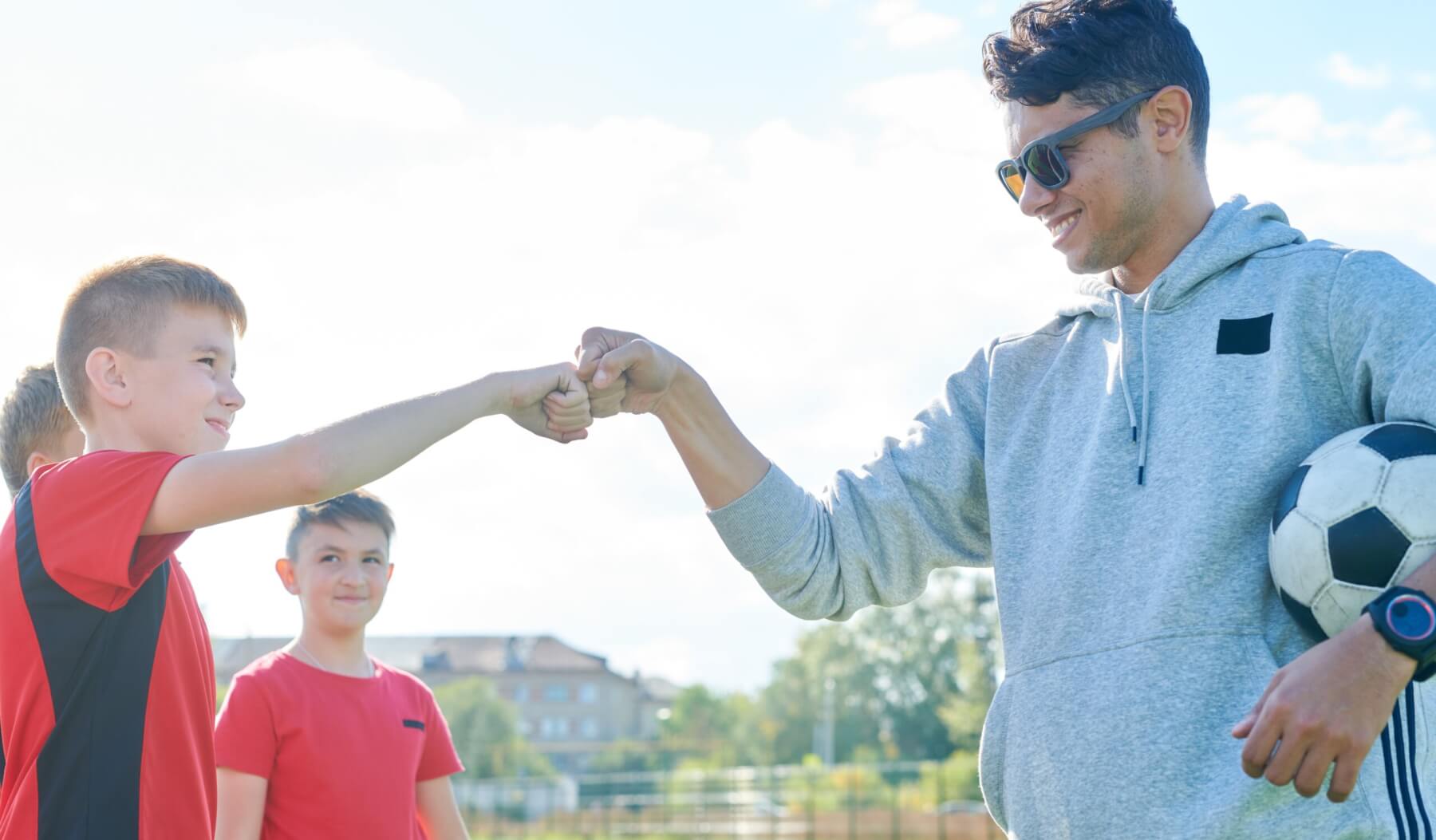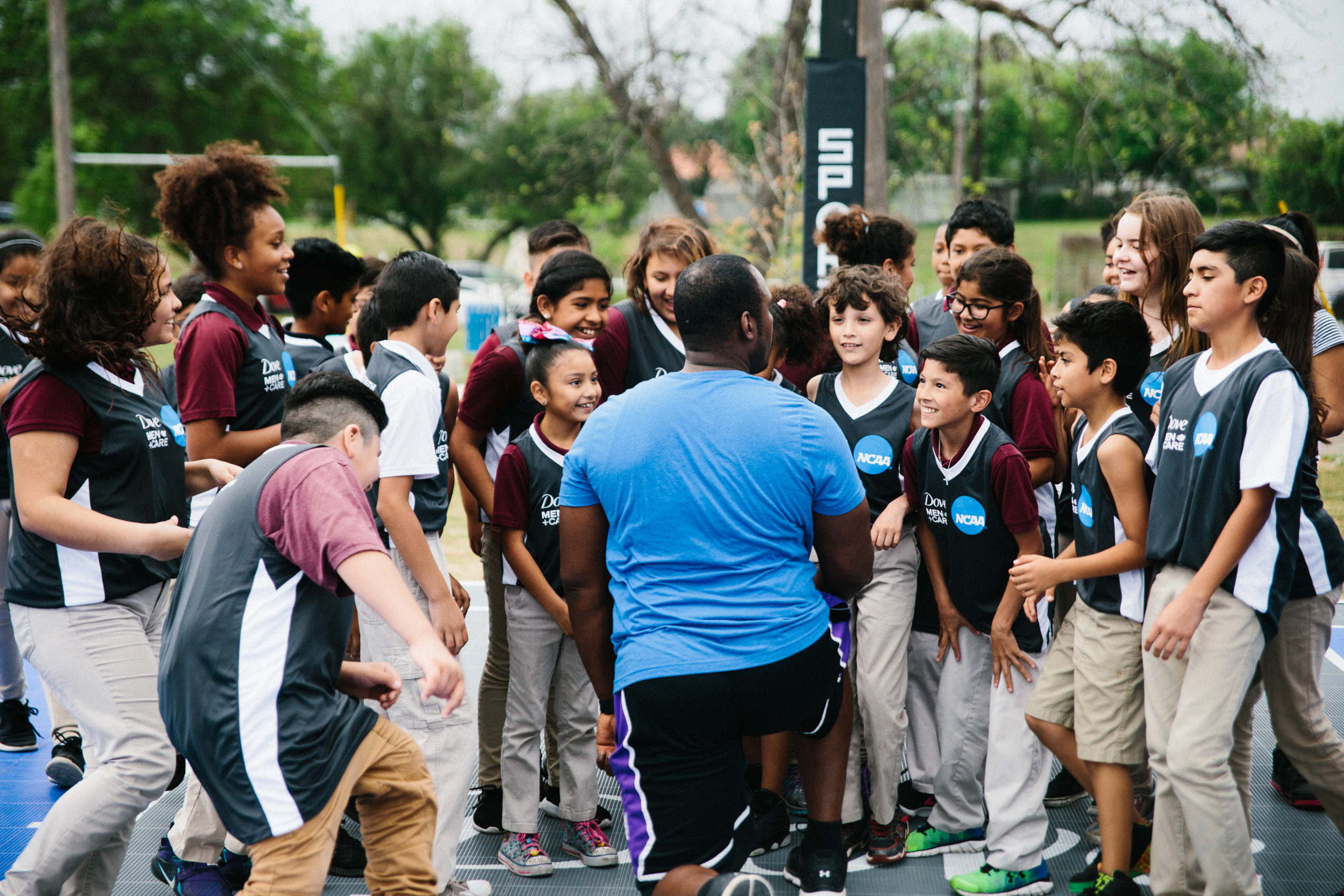
We Believe
Coaches make or break the sports experience for kids, but many feel unprepared to meet the diverse and emergent needs of young people they coach.
To create a positive environment that helps kids get the most out of sport, coaches must be trained in youth development.
We are the organizations of the Million Coaches Challenge. In fall 2025, we reached a historic milestone: one million coaches trained. Through this work, we’ve learned what it takes to scale quality coach training and identified the systemic barriers that stand in the way. Now we’re using those insights to equip the next generation of coaches with the knowledge and tools to help young people thrive on and off the playing field.
Coaches shape the youth sports experience.
As leaders of the sport setting, coaches shape the conditions that make or break it for kids.
Coaches influence how youth view the sports environment and feel about themselves. When asked what makes sports fun, young people highlight coaches, especially coaches who encourage the team, provide clear and consistent communication, stay positive through mistakes and are easy to talk to. Research demonstrates how, regardless of a young person’s ability, truly great coaches go beyond the X’s and O’s and view participants’ personal growth and enjoyment as integral to the process of winning, preparing for competition, motivating players and developing skills. Simply, quality coaching is youth-centered, underpinned by a belief that youth don’t care how much you know, until they know how much you care. In addition to young people themselves, parents value coaches who are youth-centered. In a recent national survey, youth sports parents expressed tremendous trust in their child’s coach. Unfortunately, gaps often exist between coaches’ intentions and their behaviors.

To ensure that youth sports are youth-centered, we need to cultivate a generation of coaches trained in youth development.
According to the Centers for Disease Control (CDC), physical activity has well-documented health benefits for youth that are linked to savings on long-term health care costs. Research also shows that there are basic features of sport that make it the ideal setting to help young people develop the attributes for long-term success in school, work, and life, such as social skills, the ability to work with others, a positive self-concept, and the desire to serve their community. Through intentional coaching strategies, youth in sport can experience physical and psychological safety, build community with others, and develop supportive relationships. However, we cannot take quality youth coaching for granted. Because young people develop and mature at different rates, their coaches should be well-versed in evidence-based practices that align with their developmental needs.
The vast majority of coaches are not trained in key practices to develop and support youth.
Despite a growing understanding that quality coaching involves youth-centered practices, most coaches lack the know-how and very few have been trained on key issues, such as motivation, relationship building, and mental health. According to the Sport and Fitness Industry Association, just 25.6% of current coaches received training in effective motivational techniques over the last 12 months. Similar results from the National Coach Survey, conducted by researchers at The Ohio State University, show that 70% of coaches expressed a desire for more training in relationship building, performance anxiety, leadership development and team dynamics. Less than half of coaches felt prepared to coach youth with a mental health concern, eating disorder or disability. Additionally, 70% cite low confidence in their ability to help athletes navigate the pressures of social media, link to mental health resources and refer athletes to support for basic unmet needs.


88% of MCC coaches agree that participation in training made them a better coach.
These insights highlight how evidence-based training programs are leading to positive outcomes for youth sports coaches, the youth they serve, and the communities they belong to.
Download the full belief statement (PDF) here.
Download the full impact statement (PDF) here.
Download the preliminary findings from the implementation study (PDF) here.